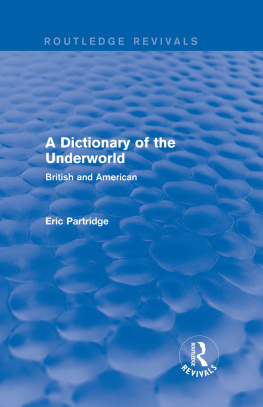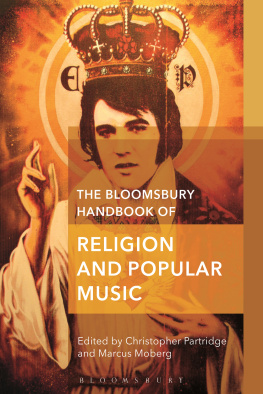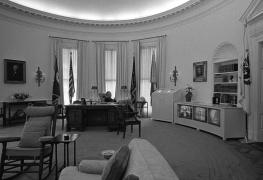This edition is published by PICKLE PARTNERS PUBLISHINGwww.picklepartnerspublishing.com
To join our mailing list for new titles or for issues with our books picklepublishing@gmail.com
Or on Facebook
Text originally published in 1986 under the same title.
Pickle Partners Publishing 2015, all rights reserved. No part of this publication may be reproduced, stored in a retrieval system or transmitted by any means, electrical, mechanical or otherwise without the written permission of the copyright holder.
Publishers Note
Although in most cases we have retained the Authors original spelling and grammar to authentically reproduce the work of the Author and the original intent of such material, some additional notes and clarifications have been added for the modern readers benefit.
We have also made every effort to include all maps and illustrations of the original edition the limitations of formatting do not allow of including larger maps, we will upload as many of these maps as possible.
AIR INTERDICTION IN WORLD WAR II, KOREA, AND VIETNAM
An interview with Gen. Earle E. Partridge, Gen. Jacob E. Smart, and Gen. John W. Vogt, Jr.
Edited with an introduction
by Richard H. Kohn and Joseph P. Harahan
Foreword
The publication of Air Interdiction in World War II, Korea, and Vietnam is part of a continuing series of historical studies from the Office of Air Force History in support of Project Warrior.
Project Warrior seeks to create and maintain within the Air Force an environment where Air Force people at all levels can learn from the past and apply the warfighting experiences of past generations to the present. When General Lew Allen, Jr., initiated the project in 1982, he called for the "continuing study of military history, combat leadership, the principles of war and, particularly, the applications of air power." All of us in the Air Force community can benefit from such study and reflection. The challenges of today and the future demand no less.
CHARLES A. GABRIEL,
General, USAF
Chief of Staff
Introduction
This book is the second of a series of group oral interviews focused on major areas of U.S. Air Force operations in the past. Begun in 1981 at the suggestion of Lt. Gen. Hans H. Driessnack, the Assistant Vice Chief of Staff, these interviews attempt to capture the recollections and insights of those former air leaders who shaped the history of the Air Force. General Driessnack thought that if senior retired officers would participate in historical discussions in small groups they might together recall incidents and experiences that might otherwise go unrecorded. In the course of remembering they might elicit from each other information that would be of interest to the Air Force today. In June 1982, the Office of Air Force History interviewed four senior tactical air leaders: Gen. James Ferguson, Gen. Robert M. Lee, Gen. William W. Momyer, and Lt. Gen. Elwood R. "Pete" Quesada; that transcript was published as Air Superiority in World War II and Korea (Washington: Office of Air Force History, 1983).
A second interview was conducted on June 17, 1983. On that occasion the topic was air interdiction: how it had been defined, planned, and executed in World War II, Korea, and Vietnam. The participantsGen. Earle E. "Pat" Partridge, Gen. Jacob E. Smart, and Gen. John W. Vogt met at Bolling Air Force Base and for more than three hours related their war experiences, first as young pilots, then as mid-level staff officers, and later as air commanders. Together they reflected on the purposes and objectives of air interdiction. Their recollections and insights ranged from pre-World War II tactical air doctrine to air campaigns in North Africa, Sicily, Italy, Normandy, and Northern France in World War II, to air interdiction campaigns in Korea, and finally, to more recent examples in Vietnam. Throughout their discussions certain issues recurred: coordinating air with ground and sea forces; allocating aircraft to different air combat missions; collecting and interpreting intelligence; planning and targeting air interdiction missions; and applying air power within a framework of political constraints. Each of these issues is discussed through the lens of personal recollection: a single individual remembering an air battle or campaign at a fixed moment in the past. Consequently, readers should treat this collective oral interview not as history, but as the source material upon which history rests. This book is a collective memoir, elicited by historians from air commanders who flew, fought, and commanded air forces in three wars.
Air interdiction was selected as the topic by the Office of Air Force History because it has been a critical element in so many past tactical air campaigns. In World War II, Korea, and Vietnam, American air forces mounted sustained air interdiction campaigns, using thousands of men and machines. in an effort to interrupt or disrupt the flow of men and materiel to the enemy armies fighting American forces. Interdiction has always been a controversial subject. Air forces have traditionally viewed it as a mission area that fell between close air support of ground forces and strategic attacks against an enemy nation's industrial capacity or moral will to wage war. Depending on the time and place, interdiction has included a multiplicity of different operations against various target systems using many different tactics and techniques. The common denominator has been the goal of denying enemy ground forces the resources to win the battle. The disputes have arisen from the difficulty of assessing fully just how the air attacks have effected the capability of the enemy's armies and therefore the outcome of the battle or campaign. Yet in spite of continuing controversy, there is a dearth of in-depth, analytical literature on the topic, especially when compared with many more substantive works concerning other air operations such as strategic bombing. We therefore believe that the thinking of these three men will contribute significant insights to an important and controversial aspect of warfare that has been little studied, but will likely engage substantially the forces of the United States in future military conflicts.
Gen. Earle E. Partridge was an Army enlisted man in World War I who rose to general officer as a combat air commander in World War II and Korea. He loved to fly. During his long military career he amassed over 11,000 hours piloting aircraft as diverse as the "Jennys" of the World War I era and the F-86Fs of the Korean War. Throughout his career he earned air commands which made him responsible for leading larger and larger groups of air forces in war. Perhaps the culmination of General Partridge's combat experiences came during the Korean War when he led the USAF's Fifth Air Force from the first hours of the conflict to the end of its first year in combat. The Fifth was the major tactical air force in Korea supporting the American Eighth Army and Tenth (X) Corps.
Partridge was born in Winchendon, Massachusetts on July 7, 1900. In the summer of 1918 he enlisted in the U.S. Army and joined the American Expeditionary Forces in Europe for the final offensive drive of World War I. In France he fought with the Army's 79th Infantry Division in battles at St. Mihiel and the Argonne. Following his discharge in 1919, Partridge attended college briefly before entering the U.S. Military Academy in September 1920. Upon graduation he received a commission as a second lieutenant in the U.S. Army, and joined the Air Service. As virtually all young air officers did in the 1920s, he went off to Kelly Field, Texas for flying instruction, graduating with both honors and a three-year assignment as an instructor pilot at Kelly. Teaching in the advanced flying school, he began his long association with tactical air concepts and operations. For three consecutive years (1926-1928) he won the Distinguished Gunners Medal at annual matches held at Langley Field, Virginia. This record stood him well in subsequent assignments in observation (Seventh Observation Squadron, Panama Canal Zone) and pursuit (94th and 27th Pursuit Squadrons, Selfridge Field, Michigan). Like many of his contemporaries, Partridge attended the Air Corps Tactical School in the 1930s, graduating with the class of 1937. Following yet another year at professional school, the Army's Command and General Staff School at Fort Leavenworth, Kansas, he became an instructor in the pursuit section at the Air Corps Tactical School. This long preoccupation with the fundamentals of tactical air concepts prior to World War II paid dividends during the war.












